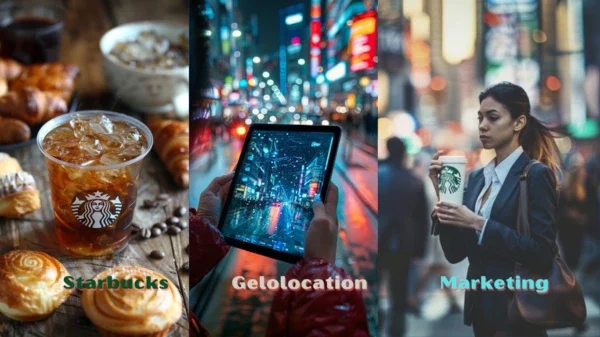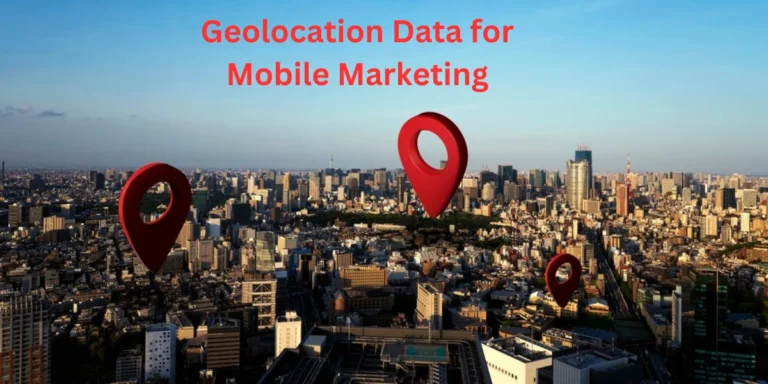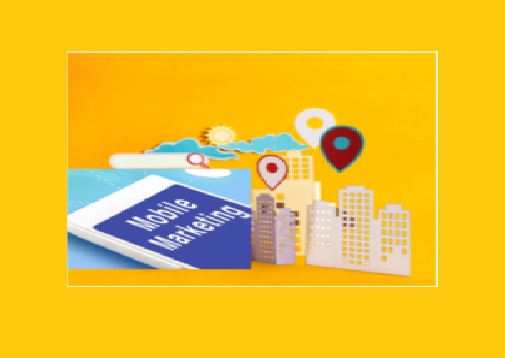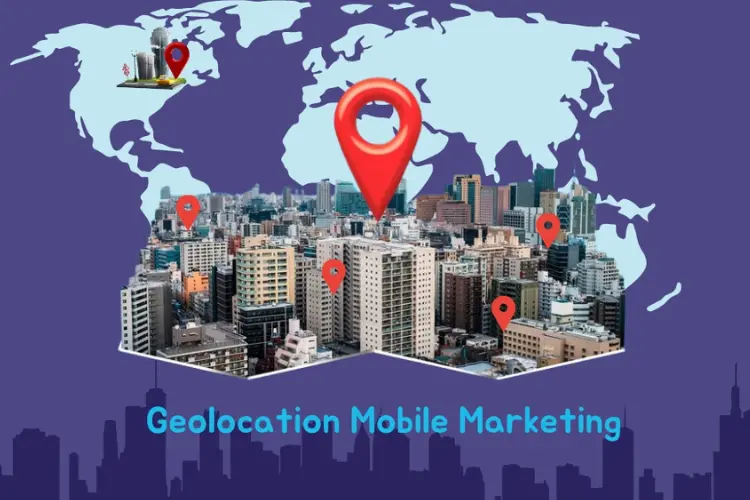Starbucks Geolocation Marketing: A Game-Changer for Improved Customer Loyalty

Geolocation technology is reshaping the way businesses connect with their customers, offering a new frontier for personalized marketing and engagement. Among the pioneers of this transformative approach is Starbucks, the world-renowned coffeehouse chain known for its innovation and customer-centric strategies. By integrating geolocation marketing into its broader marketing initiatives, Starbucks has elevated its ability to engage customers in real time, delivering personalized offers and seamless experiences that drive foot traffic and enhance loyalty.
Starbucks Geolocation Marketing leverages GPS technology to identify when customers are near a store and sends tailored notifications about promotions or favorite items. This strategic use of location-based marketing has proven to be a game-changer, boosting sales and solidifying the brand’s position as an industry leader. This article delves into Starbucks’ innovative use of geolocation marketing, examining its impact on customer engagement and exploring valuable lessons other businesses can adopt to drive their own success.
Table of Contents
1. Who is Starbucks?
Starbucks Corporation, an American multinational coffeehouse chain, was founded in Seattle, Washington, in 1971. Known for its premium coffee and inviting atmosphere, Starbucks has grown into the largest coffeehouse chain in the world. As of 2023, the company operates over 35,711 stores in 84 countries, employing a workforce exceeding 402,000 people globally.
With a reported revenue of $32.25 billion in fiscal year 2023, Starbucks remains at the forefront of the coffee industry. Its innovative marketing strategies, including the integration of geolocation technology, have been pivotal in maintaining its competitive edge and fostering strong customer loyalty.
2. Starbucks Marketing Strategy
Starbucks is widely known for its personalized, customer-first marketing approach. The company consistently focuses on enhancing the customer experience, whether through innovative loyalty programs, strong social media presence, or their mobile app. The Starbucks Rewards program, combined with targeted promotions, has helped the brand build a loyal customer base that keeps returning.
The Starbucks mobile app plays a central role in the brand’s marketing efforts. It allows customers to earn rewards, pre-order drinks, and receive personalized offers based on their preferences and behavior. One of the most notable features that Starbucks has integrated into its mobile app is Starbucks location-based Marketing, which adds a new layer of personalization and convenience.
3. Starbucks Geolocation Marketing Strategy
Starbucks Geolocation Marketing leverages GPS technology to send personalized notifications based on a user’s proximity to a store. Here’s how it works:
- Location-Based Notifications: When customers approach a Starbucks store, they receive notifications about exclusive promotions, discounts, or reminders of their favorite orders.
- Real-Time Targeting: This timely outreach ensures Starbucks remains top-of-mind, driving impulse visits and purchases.
Real-World Examples:
- New York City: With over 300 locations, Starbucks in NYC uses geolocation to target busy commuters in areas like Times Square. Notifications about limited-time offers encourage customers to step in for a quick coffee break.
- London, UK: In high-traffic areas such as Oxford Street, Starbucks sends promotional reminders, boosting foot traffic during peak shopping hours.
- Tokyo, Japan: Starbucks taps into Tokyo’s bustling commuter culture by notifying app users of nearby stores during rush hours, effectively capturing on-the-go customers.
4. Prerequisites for Implementing Geolocation Marketing
Before implementing Geolocation Marketing, Starbucks had to ensure that several key elements were in place to make the strategy effective:
- Robust Mobile App: The Starbucks mobile app needed to be highly optimized for geolocation capabilities. It needed to accurately track the user’s location in real-time and deliver relevant notifications promptly. The app also had to be user-friendly to encourage frequent use.
- Integration with Loyalty Program: the Geolocation Marketing is closely tied to the Starbucks Rewards program. This integration allows the company to send personalized offers that are not only location-based but also tailored to each user’s purchase history and preferences.
- Data Security and Privacy: Given the sensitive nature of location data, Starbucks made sure to prioritize data security. Customers must opt in to location tracking, and the app clearly explains how geolocation data is used. Transparency about data usage has been key to gaining customer trust.
- Store Infrastructure: Starbucks had to ensure that its stores were equipped with the right technology infrastructure, such as Wi-Fi and point-of-sale systems that could integrate smoothly with mobile app orders and geolocation-based promotions.
5. Benefits of Geolocation Marketing

The benefits of Geolocation Marketing are mainly:
- Increased Foot Traffic: By sending location-based notifications, Starbucks has successfully driven more customers into its stores, particularly during slower hours. This has significantly boosted sales across key urban locations.
- Higher Customer Engagement: Personalized offers based on a customer’s location and purchase history keep users engaged with the Starbucks app. This, in turn, has led to more frequent visits and an increase in repeat customers.
- Enhanced Customer Experience: Geolocation Marketing allows for a seamless, personalized experience that customers appreciate. From timely offers to reminders about new store openings or favorite drinks, the strategy enhances the overall customer journey.
- Increased Revenue: Targeted geolocation campaigns have proven to convert nearby foot traffic into actual purchases, contributing to the brand’s revenue growth. Timely push notifications ensure that Starbucks stays top-of-mind whenever customers are in close proximity to a store.
6. Ethical Considerations of Geolocation Marketing
While Starbucks Geolocation Marketing has yielded many positive results, it also brings up important ethical questions around data privacy. Starbucks ensures that customers must opt-in to location tracking and provides transparency regarding how this data is used. The company is careful not to overwhelm users with excessive notifications, striking a balance between engaging customers and respecting their privacy.
Other businesses considering geolocation marketing must also ensure they adhere to ethical standards. Transparency and data security are key to maintaining trust with customers in this area.
7. Lessons for Other Businesses
Other businesses can learn valuable lessons from Starbucks location-based Marketing:
- Invest in a High-Quality App: A user-friendly mobile app is the foundation of successful geolocation marketing. Ensure that your app has the necessary capabilities to track users’ locations and deliver relevant notifications.
- Personalize the Experience: Starbucks location-based Marketing combines location data with personalized offers based on customer preferences. Businesses should aim to create similar tailored experiences for their users.
- Prioritize Data Privacy: Always be transparent with users about how their data is being used. Ensure that customers can opt in or out of location tracking and that their data is protected.
- Leverage Geolocation to Drive Sales: Geolocation marketing can be highly effective in driving sales, especially in high-traffic areas. By targeting users at the right time and place, businesses can boost foot traffic and increase conversions.
8. Conclusion
Starbucks Geolocation Marketing has proven to be a game-changer for customer engagement and loyalty. By utilizing geolocation technology to deliver timely, personalized offers, Starbucks has been able to drive foot traffic, boost sales, and enhance the overall customer experience. Other businesses can learn from Starbucks’ success by adopting similar strategies, focusing on personalization, data privacy, and seamless app integration. As geolocation marketing continues to evolve, businesses that prioritize customer engagement and loyalty through innovative technology will be well-positioned for growth.
FAQ: Starbucks Geolocation Marketing
1. What is Starbucks Geolocation Marketing?
Starbucks Geolocation Marketing is a strategy that uses GPS technology to deliver personalized, location-based notifications to customers. When a user with the Starbucks mobile app is near a store, they receive timely alerts about promotions, discounts, or their favorite menu items, encouraging them to visit and make a purchase.
2. How does Starbucks implement Geolocation Marketing?
Starbucks integrates geolocation features into its mobile app, leveraging real-time GPS data to identify when customers are near a store. The app sends targeted notifications based on location, purchase history, and preferences. These notifications are tied to the Starbucks Rewards program to enhance personalization and encourage engagement.
3. What are the benefits of Geolocation Marketing for Starbucks customers?
Customers enjoy a personalized experience, including:
- Timely reminders about nearby stores and offers.
- Exclusive promotions tailored to their preferences.
- Seamless integration with the Starbucks Rewards program, making it easier to earn and redeem rewards.
4. How does Starbucks ensure data privacy in Geolocation Marketing?
Starbucks prioritizes data privacy by requiring customers to opt-in for location tracking. The app transparently explains how location data is used and ensures secure storage of customer information. Notifications are also carefully curated to avoid overwhelming users while respecting their privacy.
5. Can other businesses replicate Starbucks’ Geolocation Marketing success?
Yes, other businesses can learn from Starbucks by:
- Investing in a high-quality mobile app with geolocation capabilities.
- Personalizing customer interactions using location and preference data.
- Ensuring transparency and security in data usage.
- Strategically timing notifications to maximize engagement and sales.




5 Comments
Comments are closed.